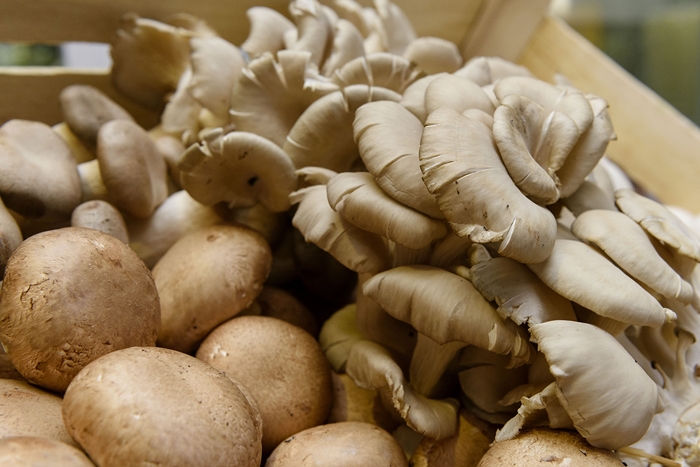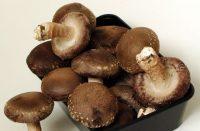Cultivated mushrooms regularly make headlines in newspapers for their various medicinal properties. They have been shown to reduce the risk of cancer and contain significant amounts of antioxidants. Some mushrooms may be effective against leukemia, but they may also be a powerful tool in the fight against obesity. However, no detailed research has yet been done on mental health (eg. depression). New research led by the Penn State College of Medicine has explored how the consumption of superfoods, including mushrooms, affects the development of depression. The results of the research were recently published in the Journal of Affective Disorders.
The researchers hypothesised that because mushrooms contain a number of bioactive compounds such as vitamin B12, antioxidants and anti-inflammatory substances, there may be a link between mental health and mushroom consumption. The research used data from the US National Health and Nutrition Examination Survey, which was conducted between 2005 and 2016, interviewing 25,000 people in the US.7
Prevalence of mental illness
It is known that mental illnesses, such as depression, are the third leading cause of hospitalisation among adults in the US, with people with acute mental illness dying on average 25 years earlier. Depression is a major public health problem and a serious medical illness, associated with mood symptoms such as feeling of guilt or low self-esteem, as well as cognitive and physical symptoms such as sleep disorders, changes in appetite or weight, and concentration problems.
Evidence from a previous study in 2017 suggests that improving diet is an effective treatment strategy for treating major depressive episodes. In addition, a meta-analysis also found that high intakes of fruits, vegetables, whole grains and antioxidants and reduced consumption of animal foods are associated with a lower risk of depression.
We also know that mushrooms are low in calories and fat, cholesterol-free, good sources of vitamins (e.g. B1, B2, B2, B12 and C) and minerals (selenium and copper) and fit well into healthy dietary recommendations. Mushrooms are a rich source of antioxidants called glutathione and ergothioneine. Previous research has suggested that antioxidants and vitamin B12 have antidepressant effects. Certain species of edible mushrooms, such as Hericium erinaceus, may stimulate the synthesis of neurotrophic factors such as nerve growth factor (NGF), which may have potential effects in the prevention of neuropsychiatric disorders, including major depression. The mushrooms also contain anti-inflammatory agents. Inflammatory processes are known to be associated with depression, and NSAIDs are thought by researchers to reduce stress and depression.
Large-scale experiment
The average age of the 24,699 US adults (12,268 men and 10,304 women) included in the analysis was 45.5 years; about half of the study participants were male (50.2%) and more than half were non-Hispanic white (66.1%). Analysis of the data showed that the highest consumers of mushrooms were non-Hispanic white females with at least a college education. After taking into account socio-demographic characteristics, major risk factors, self-reported illness, medications and other dietary factors, and excluding respondents with certain medical conditions, the researchers found a significant association between mushroom consumption and lower odds of depression.
However, analysis of the data also showed that there was no significant dose-response relationship between higher mushroom consumption and the odds of depression. This means that even if we eat more mushrooms, our risk of depression does not decrease in proportion to the amount of mushrooms we eat.
The researchers suggest that the association between mushroom consumption and depression observed in the study may be due to a possible biological mechanism, which may result from the antioxidant and neuroprotective properties of specific mushroom components such as ergothioneine.
These findings highlight the potential clinical and public health importance of mushroom consumption as a possible tool for reducing depression and preventing disease.
Source: PennState News












